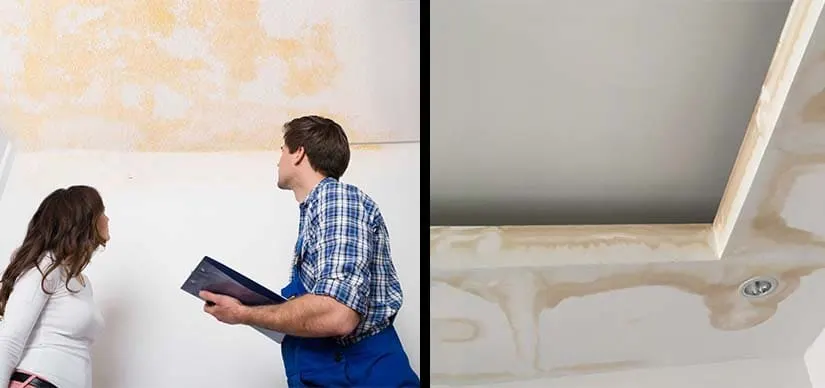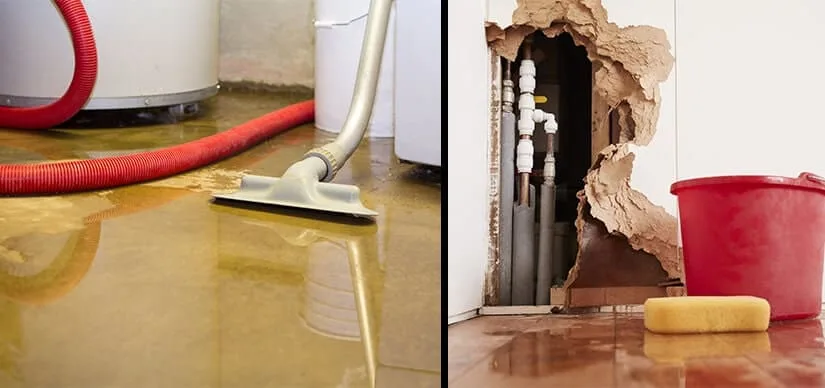How Can Cold Weather Damage Your Water Heater?
Views : 1169
_11zon.webp)
Tankless water heaters have ‘freeze prevention’ inbuilt, so they cannot freeze as long as you have a power supply. Freezing can happen as a result of prolonged power shortages accompanied by freezing temperatures.
Natural gas tank-type heating systems don’t need electricity to operate, so as soon as the gas is supplied to a house, the water heater will retain the tank at the perfect temperature.
Tankless water heater repair or maintenance is usually the last thing on most people’s minds. However, it is an essential component of your home’s comfort and functioning. The weather significantly impacts your plumbing, and freezing temperatures can quickly lead to catastrophic plumbing problems throughout the winter season.
Cold weather can cause your pipes to freeze, causing overexpansion. This causes pipe bursts and makes your water heater work harder than usual. In some instances, this results in tiny leaks that can go unnoticed and cause substantial harm in the long run. If you have a broken water heater, don’t hesitate to contact tankless water heater repair professionals in Los Angeles. We are your dependable tankless water heater repair and installation service provider in Los Angeles with the necessary expertise.
Common Indicators Of A Faulty Water Heater
Here are the common indicators that you can look out for to unveil the water heater issues before the damage is irreversible:
1. Pipe Leaks Or Water Spots
Pipe leaks or water spots on your water heater are simple to repair at times, especially if the equipment is new. Also, the valves of your water heater may get loose or defective occasionally and can be fixed with the help of professional water heater repair service providers. However, if your water heater leaks and leaves water spots, the chances of replacing your water heater are higher in the near future. When temperatures dip outside, inlet pipes frequently burst and need to be replaced instantly.
2. Energy Bills Have Risen Dramatically.
Keeping hot water warm in subzero temperatures can be difficult. Especially during the winter months, a significant spike in your power cost may indicate that your water heater isn’t keeping your water as warm as you’d want. As heat is continually lost to the environment, tank-based water heaters that store hot water until it is ready to use are working above and beyond. When the water cools, the heating unit activates, consuming more energy to reheat the water. Insulation is critical here: an insulation jacket and pipe insulation will keep the water warm as it stays in the tank and travels through the plumbing system. A little forethought will ensure that your water heater is ready for the winter.
3. The Appliance Has Rust
When it comes to water heaters, rust can be difficult to avoid, especially as they age. If your water heater is matured, the tank or inlet pipes have most likely rusted, which can lead to further problems such as leaks and drips. Rust is a solid indicator that it’s time to replace your equipment. Our professionals can assist you in selecting the best water heater for your needs without breaking your bank.
4. During The Operation, There Was A Lot Of Banging And Knocking
Strange sounds aren’t necessarily a sign of a water heater problem, and they may necessitate maintenance if they’re unusually noisy. Adjusting the intake valves or removing silt from the tank are two examples of fixes. Allowing warm air to circulate the heater will also help prevent frozen pipes, which make “popping” noises before bursting.
5. Insufficiency Of Constant Hot Water
If you’re having lukewarm baths or don’t have hot water when cleaning the dishes, it’s a dead giveaway that your water heater isn’t working properly. When the answer is as simple as turning up the heat, the problem is more serious. The device may have to be replaced, or one of the expert professionals may have to drain the tank and remove layers of silt, limiting the amount of hot water you can use. If you observe a consistent shortage of hot water, you should have a professional inspection of the system.
6. Sediment & Mineral Deposition
Sediment and minerals are known to accumulate on the bottom of water heaters. This is a concern because they suck the heat out of the freshly created warm water. You understand what I mean. More energy is being consumed, and some of your hot water may be lost. It’s critical to get all of the scale, corrosion, and sediment cleaned from your water heater, especially before it starts working overtime. If you haven’t already, you should flush your water heater regularly to avoid damage.
If you observe any of the difficulties listed above, it’s time to contact Tankless Water Heater Repair professionals in Los Angeles. A specialist may come to your home and diagnose the problem rapidly and efficiently, as well as provide helpful water heater maintenance suggestions. Never attempt a plumbing repair on your own since this could result in more costly damage down the road.
What Steps Can You Take to Avoid Hot Water Problems?
1. Insulate Any Exposed Pipes
Furthermore, covering those exposed pipes will most certainly do the trick and save you some hot water in the process. We found an excellent site that explains how to keep those pipes bundled uptight during the winter to help prevent hot water problems. In reality, you can use anything from fabric to electrical tape and insulating sleeves to do the job fast and efficiently.
2. Allow the Faucet to Drip
There’s an easy way to keep your pipes from freezing, which will help you avoid hot water problems and severe property damage. And if you can keep those pipes from freezing, they won’t burst. This works exceptionally effectively in older homes. There’s no need to go out and buy anything additional, and you don’t need a plumbing expert to help you. It only takes a little flowing water; turn on your faucet and let a tiny bit of water trickle out when you know it will be freezing. A constant flow of water, no matter how modest, can prevent water from sitting in your pipes and freezing over.
3. Your Hot Water Heater Should Be Covered
If your water heater is located in the basement or garage, where it tends to be more relaxed than the rest of the house, there is a simple approach you may employ. Keeping this in mind, strive to hold warm air circulating in that area of the house. If you own this region of the house at a minimum of 55 degrees, you will be able to keep your heater from constantly running on high. However, even a well-placed portable heater can’t always do the trick. But don’t worry! Why not invest in a warmer blanket? You already have one, so why not utilize it for the heater? There are also specially designed heater blankets that assist in insulating the tank! In this manner, you can keep your heater warm and cozy, avoiding hot water problems when the temperature drops significantly.
Expert Suggestions For Winterizing Your Hot Water System
1. Remove the filter of your water heater
There may be occasions when you need to drain the water from your water heater, whether due to a power outage or an extended trip. The last thing you want is for your water heater to burst due to the expansion of frozen water.
2. When manually draining your water heater, remember to:
- Turn off the cold water and gas supplies.
- Deactivate the temperature control.
- Turn off the electrical power to the water heater.
- Place a bucket beneath the heater to collect water.
- Disconnect the hot and cold isolation valves drain caps.
- Turn on the valves.
- Disconnect the cold-water inlet filter.
Installing freeze protection solenoid valves is one of the most effective ways to keep your water heater from freezing. In a power loss, the valves will automatically open and remove the water from the device. You can also cover the intake and exhaust vents with a cover. This helps to prevent airflow problems by keeping trash, leaves, and small animals out.
3. Keep your water heater away from the cold
Although it may not always be practical, you should aim to locate your water heater away from freezing temperatures. If your tankless water heater is located in a hot area, it is less likely to freeze. If that is not possible, the next best option is to install the unit in a covered outside room. Make sure to position the vents away from the prevailing winds to avoid wind chill and to include vent terminations to give further wind resistance.
4. Insulate your water heater and pipes
Insulating your pipes is just as crucial as insulating your water heater. The freeze protection feature in your water heater does not safeguard your pipes. For the best protection, wrap your external pipes in heat tape, fiberglass, or polyethylene wrap.
If your pipes do freeze, try thawing them out by increasing the temperature. Call a plumber who has an electric pipe-thawing machine if you have metal pipes. To quickly thaw out the frozen pipe, the device will send a low voltage, high amp electric current through it.
5. Think about using a recirculation system
Recirculation systems are meant to provide hot water instantly, which is ideal for those who live in chilly climates. During the winter, the recirculation system allows your water heater to continuously pump warm water into your home, keeping the pipes warm and preventing the water and tankless water heater unit from freezing.
6. Maintain your water heater system
Unless you have a timeshare near the beach where you can escape during the winter (lucky you), you should keep your water heater linked to a power source at all times. Aside from altering the temperature of your water heater, one approach you may attempt to reduce freezing is to run a trickle of water overnight to maintain the water flowing through your water heater system. Most standard-sized pipes can be kept from freezing by running 1/10 gallon of water every minute.
Standing water expands within tankless water heaters, posing the most significant freezing risk. When water freezes and expands, it may produce a force of over 40,000 psi on the affected area and can split almost any piping material if it cannot grow enough to absorb the stress.
If your water heater continues to freeze, the worst-case situation is to call a tankless water heater repair expert in Los Angeles to inspect the problem and any damage it has caused to your water heater. A job like this should not be tackled by attempting a quick DIY solution. Tankless Water Heater Repair professionals in Los Angeles have the right tools and required training to unfreeze your piping system effectively and safely. So, whenever you are stuck with winter-related damage to your water heater, contact our Tankless Water Heater Repair expert in Los Angeles to learn how we can help you repair it quickly and effectively.
If you want to continue taking hot baths and showers during the winter, your best chance is to take preventative measures to ensure that your water heater will function correctly during the cold weather. Schedule seasonal maintenance with a plumbing specialist this year, especially if you’re preparing your house for holiday guests. Your water heater and plumbing system will appreciate the extra attention as they work hard to handle their increasing use.
Many homeowners are unaware that their water heater has a significant impact on their family’s overall comfort. Like any other equipment, your water heater can suffer from regular wear and tear and begin to malfunction over time.
Our water heater repair team in Los Angeles has years of professional experience. However, sophisticated industry training enables our team of skilled plumbers to handle even the most challenging tankless water heater installation in Los Angeles and replace your old unit, if necessary, completely. In addition to repairing and replacing water heaters, our experts are skilled at performing tune-ups and installing water heaters in new houses.
Category
Recent Posts

.jpg)


